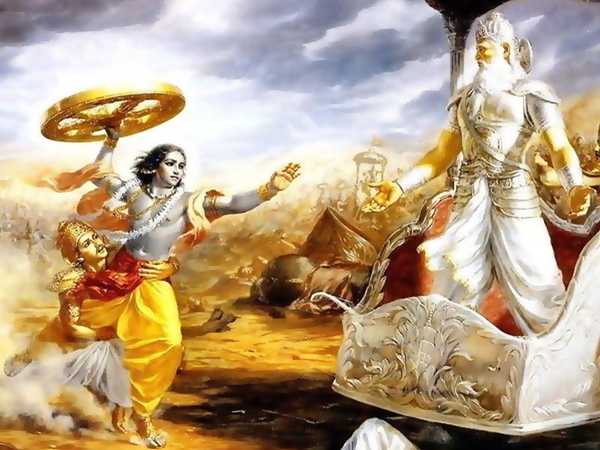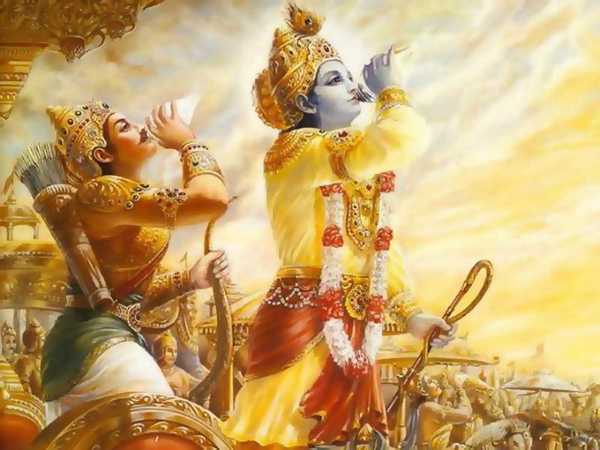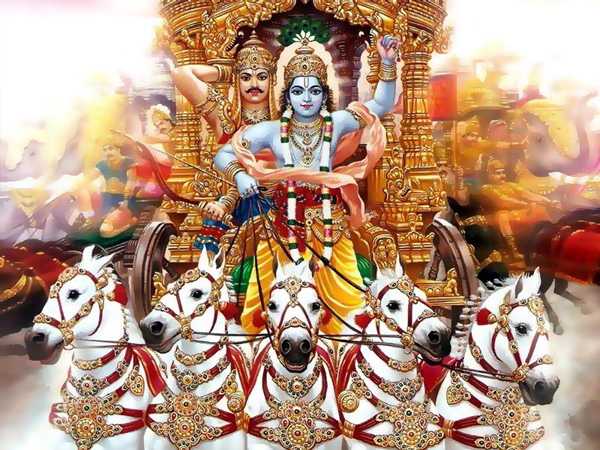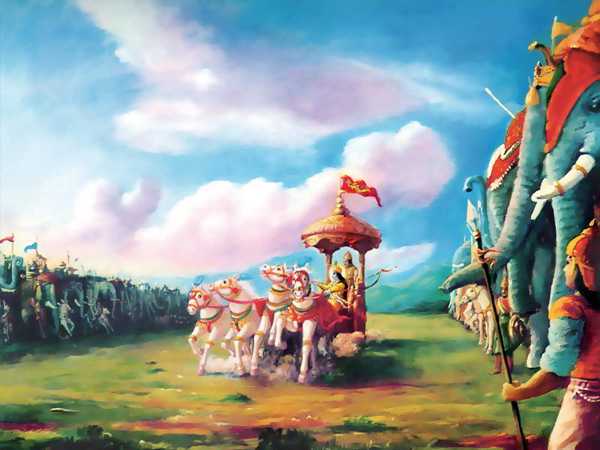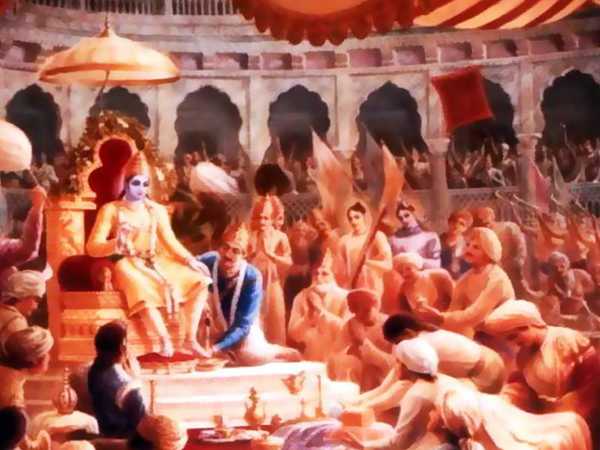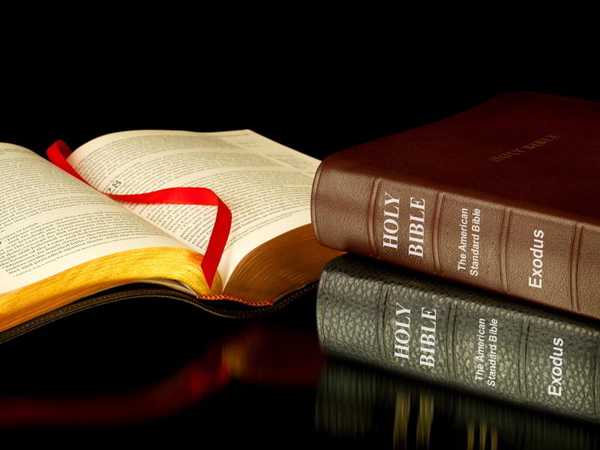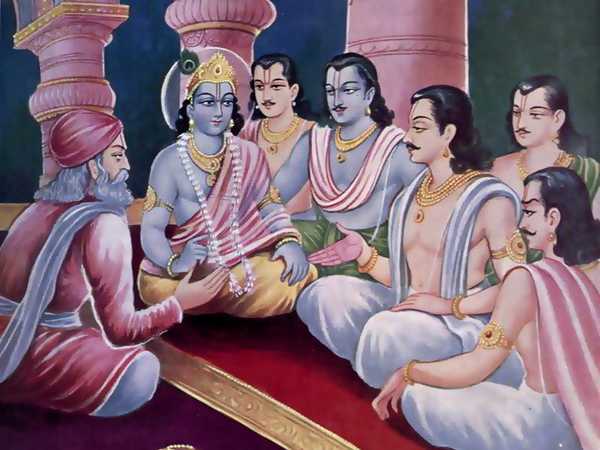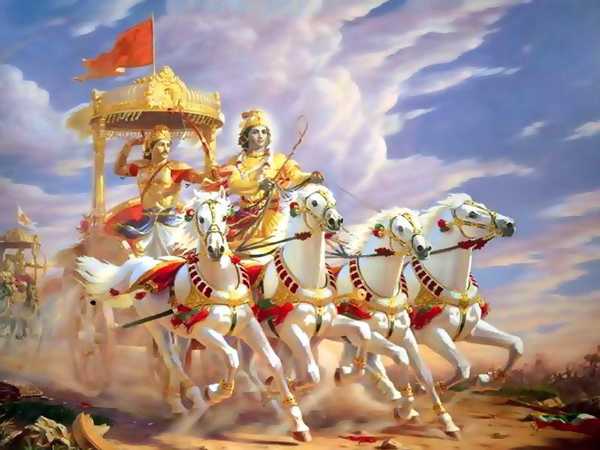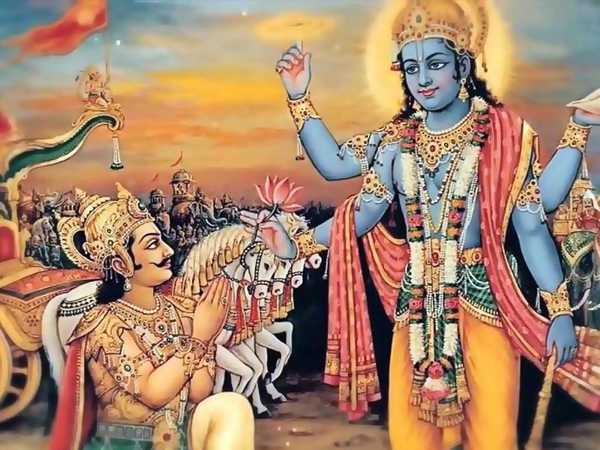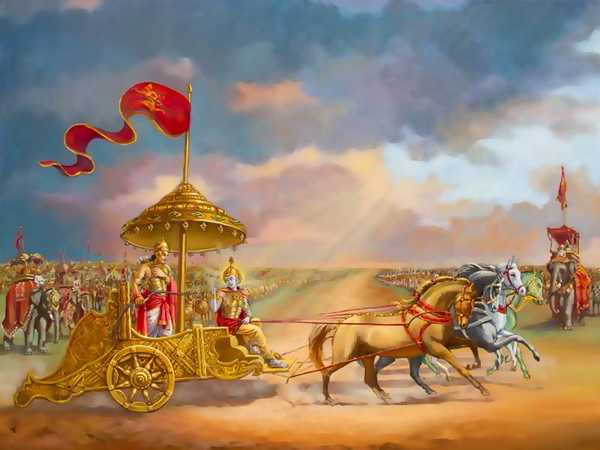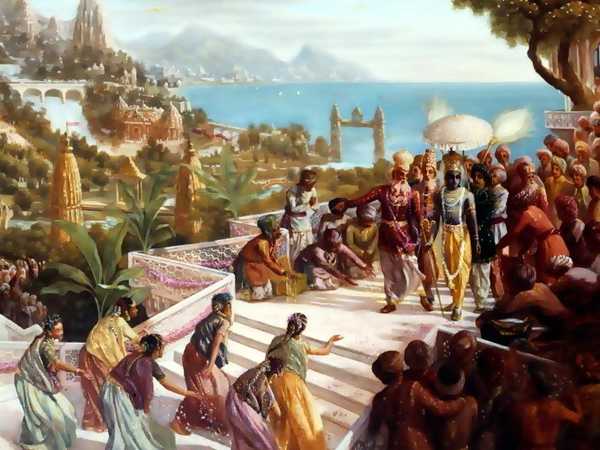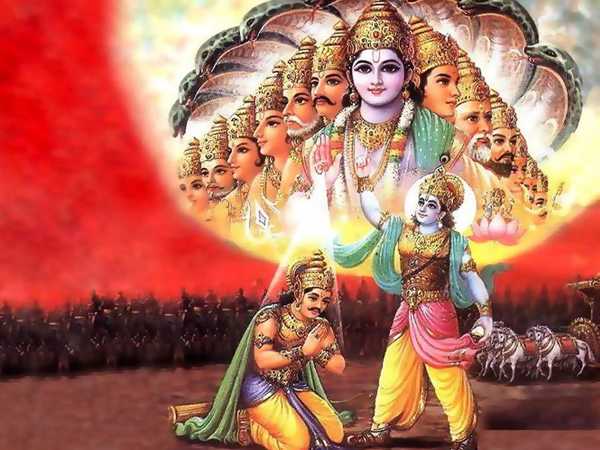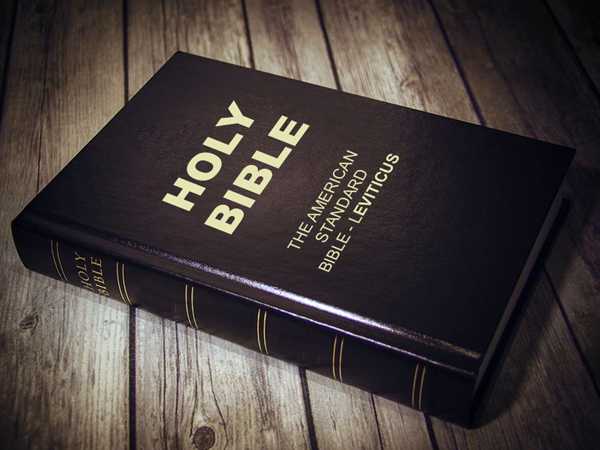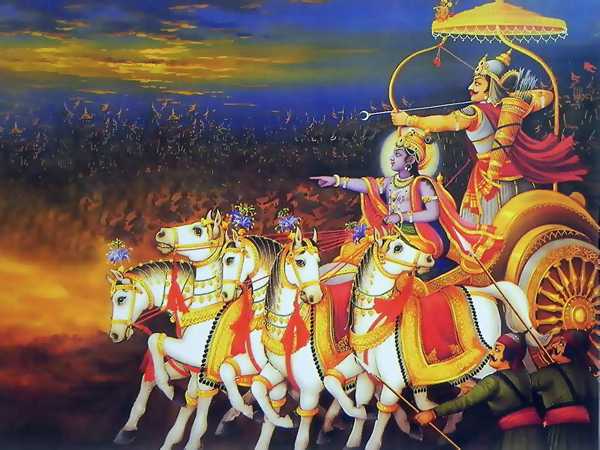Chapter 157
“Bhishma said, ‘Hearing these words of the god of wind, Arjuna remainedsilent. At this, the god of wind once more addressed him, saying, ‘Whenthe denizens of heaven, with Indra at their head, found themselves withinthe mouth of the Asura Mada, at that time Chyavana took away from themthe earth.
Chapter 157
“Vaisampayana said, ‘Bhima, beholding Hidimva following them, addressedher, saying, ‘Rakshasas revenge themselves on their enemies by adoptingdeceptions that are incapable of being penetrated. Therefore, O Hidimva,go thou the way on which thy brother hath gone.’
Chapter 157
“Bhishma said, ‘Having settled this in his mind, the Salmali. in sorrow,himself caused all his branches, principal and subsidiary, to be cut off.
Chapter 157
Vaisampayana continued, “On that Rakshasa having been slain, that lord,the royal son of Kunti, returned to the hermitage of Narayana and beganto dwell there.
Chapter 157
“Sanjaya said, ‘Thus addressed by Duryodhana, Drona’s son, that warriordifficult of defeat in battle, set his heart upon destroying the foe,like Indra bent upon destroying the Daityas.
Chapter 157
“Vaisampayana said, Dhritarashtra’s son, accompanied by all the kings,then addressed Bhishma, son of Santanu, and with joined hands said thesewords, ‘Without a commander, even a mighty army is routed in battle likea swarm of ants.
Chapter 158
“Yudhishthira said, ‘Thou always worshippest, O king, Brahmanas ofpraiseworthy, vows. Whatever, however is that fruit seeing which thouworshippest them, O king? O thou of high vows, beholding what prosperityattaching to the worship of the Brahmanas dost thou worship them? Tell meall this, O thou of mighty arms!
Chapter 158
“Vaisampayana said, ‘Those mighty car-warriors, the heroic Pandavas, thenwent, O king, from forest to forest killing deer and many animals (fortheir food).
Chapter 158
“Yudhishthira said, ‘I desire, O bull of Bharata’s race, to hear indetail the source from which sin proceeds and the foundation upon whichit rests.’
Chapter 158
“Sanjaya said, ‘Then king Yudhishthira, and Bhimasena, the son of Pandu,O monarch, encompassed Drona’s son on all sides.
Chapter 158
Vaisampayana continued, “Having approached that one, whose sins had beenconsumed by asceticism, Yudhishthira announced his name, and gladlygreeted him, bending his head.
Chapter 158
“Janamejaya said, ‘When Yudhishthira heard that Bhishma, the high-souledson of Ganga, the foremost of all wielders of weapons, the grandsire ofthe Bharatas, the head of all the kings, the rival of Vrihaspati inintellect, resembling the ocean in gravity, the mountains of
Chapter 159
“Yudhishthira said, ‘Do thou tell us, O slayer of Madhu, what theprosperity is that attaches to the worship of the Brahmanas. Thou artwell-conversant with this topic. Verily, our grandsire knows thee.’
Chapter 159
“Janamejaya asked, ‘O first of Brahmanas, what did the Pandavas, thosemighty car-warriors, the sons of Kunti, do after arriving at Ekachakra?’
Chapter 159
“Yudhishthira said, ‘Thou hast said, O grandsire, that the foundation ofall evils is covetousness. I wish, O sire, to hear of ignorance indetail.’
Chapter 159
“Sanjaya said ‘Beholding Somadatta shaking his large bow, Satyaki,addressing his driver, said, ‘Bear me towards Somadatta.
Chapter 159
Janamejaya said, “How long did my great grandsires, the highsouled sonsof Pandu of matchless prowess, dwell in the Gandhamadana mountain? Andwhat did those exceedingly powerful ones, gifted with manliness, do?
Chapter 159
“Vaisampayana said, ‘About this time, there came into the Pandava campBhishmaka’s son, foremost among all persons of truthful resolution, andknown widely by the name of Rukmi.
Chapter 16
“Vaisampayana said, ‘Great was the uproar, at that time, O king, of bothmen and women standing on the terraces of mansions or on the Earth.
Chapter 16
1 Now Korah, the son of Izhar, the son of Kohath, the son of Levi, with Dathan and Abiram, the sons of Eliab, and On, the son of Peleth, sons of Reuben, took [men]:
Chapter 16
1 And they took their journey from Elim, and all the congregation of the children of Israel came unto the wilderness of Sin, which is between Elim and Sinai, on the fifteenth day of the second month after their departing out of the land of Egypt.
Chapter 16
“Dhritarashtra said, ‘Describe to me the battle of Arjuna with thesamsaptakas, and of the other kings with the Pandavas. Narrate to mealso, O Sanjaya, the battle of Arjuna with Ashvatthama, and of the otherlords of the Earth with Partha.’
Chapter 16
“Vrihaspati said, ‘Thou art the mouth, O Agni, of all the gods. Thou artthe carrier of sacred offerings. Thou, like a witness, hast access to theinner souls of all creatures.
Chapter 16
Sanjaya said,–“When the night had passed away, loud became the noisemade by the kings, all exclaiming, Array! Array!
Chapter 16
“Yudhishthira said,–‘Desirous of the imperial dignity but acting fromselfish motives and relying upon courage alone, how, O Krishna, can Idespatch ye (unto Jarasandha)? Both Bhima and Arjuna, I regard as myeyes, and thee, O Janardana as my mind.
Chapter 16
Vaishampayana said, “Understanding that that weapon was thrown (into thewombs of the Pandava women) by Drona’s son of sinful deeds, Hrishikesha,with a cheerful heart, said these words unto him:
Chapter 16
“Kichaka said, ‘O thou of tresses ending in beautiful curls, thou artwelcome. Surely, the night that is gone hath brought me an auspiciousday, for I have got thee today as the mistress of my house. Do what isagreeable to me.
Chapter 16
1 Now Sarai, Abram’s wife, bare him no children: and she had a handmaid, an Egyptian, whose name was Hagar.
Chapter 16
“Vasudeva continued, ‘O king of kings, Salwa, the lord of Saubha, cametowards our city with an immense force consisting of infantry, cavalryand elephants!
Chapter 16
“Saunaka said, ‘O Sauti, relate once more in detail this history of thelearned and virtuous Astika. Our curiosity for hearing it is great. Oamiable one, thou speakest sweetly, with proper accent and emphasis; andwe are well-pleased with thy speech. Thou speakest even as thy father.Thy sire was ever ready to please us. Tell us now the story as thy fatherhad related it.’
Chapter 16
Vaishampayana said, “Having said these words, Gandhari, though staying onthat spot which was distant from the field of battle, beheld, with herspiritual eye, the slaughter of the Kurus.
Chapter 16
Vaisampayana said, “After the conclusion of Arjuna’s speech, Bhimasena ofgreat wrath and energy, mustering all his patience, said these words untohis eldest brother, ‘Thou art, O monarch, conversant with all duties.
Chapter 16
“Janamejaya said, “When the high-souled Kesava and Arjuna after slayingtheir enemies repaired to the assembly rooms, what conversation, Oregenerate one, took place between them?’
Chapter 16
1 Observe the month of Abib, and keep the passover unto Jehovah thy God; for in the month of Abib Jehovah thy God brought thee forth out of Egypt by night.
Chapter 16
“Sanjaya said, ‘Beholding that army of thine exceedingly broken, thevaliant Vrishasena, single-handed, began to protect it, O king,displaying the illusion of his weapons.
Chapter 16
1 And Jehovah spake unto Moses, after the death of the two sons of Aaron, when they drew near before Jehovah, and died;
Chapter 16
“Sanjaya said, ‘Then, O lord, thy troops, with Shalya at their head, oncemore rushed against the Parthas in that battle with great impetuosity.
Chapter 16
“Upamanyu said, ‘There was in the Krita age, O sire, a Rishi celebratedunder the name of Tandi. With great devotion of heart he adored, with theaid of Yoga-meditation, the great God for ten thousand years.
Chapter 160
“Yudhishthira said, ‘It behoveth thee, O slayer of Madhu, to expound tome that knowledge which thou hast acquired through the grace of Durvasa!O foremost of all persons endued with intelligence, I desire to knoweverything about the high blessedness and all the names of thathigh-souled one truly and in detail![616]
Chapter 160
“Vaisampayana said, “On hearing these words of the Brahmana, his wifesaid, ‘Thou shouldst not, O Brahmana, grieve like an ordinary man. Nor isthis the time for mourning. Thou hast learning; thou knowest that all menare sure to die; none should grieve for that which is inevitable. Wife,son, and daughter, all these are sought for one’s own self.
Chapter 160
“Yudhishthira said, ‘O grandsire, O thou of virtuous soul, what, indeed,is said to be productive of great merit[458] for a person attentivelyengaged in the study of the Vedas and desirous of acquiring virtue?
Chapter 160
“Sanjaya said, ‘During the progress of that fierce and terrible battle,when the world was enveloped with darkness and dust, O king, thecombatants, as they stood on the field, could not see one another.
Chapter 160
Vaisampayana said, “Hearing various sounds resounding in the caves of themountain and not seeing Bhimasena, Kunti’s son, Ajatasatru and the twinsons of Madri and Dhaumya and Krishna and all the Brahmanas and thefriends (of the Pandavas), were filled with anxiety.
Chapter 160
“Janamejaya said, ‘After the soldiers had been arrayed thus in order ofbattle (on the field of Kurukshetra), what, O bull among Brahmanas, didthe Kauravas then do, urged as they were by destiny itself?’
Chapter 161
“Vasudeva said, ‘O mighty-armed Yudhishthira, listen to me as I recite tothee the many names of Rudra as also the high blessedness of thathigh-souled one.
Chapter 161
“Vaisampayana said, ‘On hearing these words of her afflicted parents, thedaughter was filled with grief, and she addressed them, saying, ‘Why areyou so afflicted and why do you so weep, as if you have none to lookafter you? O, listen to me and do what may be proper.
Chapter 161
“Bhishma said, ‘They that are possessed of knowledge say that everythinghas penance for its root.
Chapter 161
“Sanjaya said, ‘When the field of battle which had before been envelopedin darkness and dust had thus become illuminated, heroic warriorsencountered one another, desirous of taking one another’s life.[218]
Chapter 161
“The lord of treasures said, ‘O Yudhishthira, patience, ability,(appropriate) time and place and prowess–these five lead to success inhuman affairs. O Bharata, in the Krita Yuga, men were patient and able intheir respective occupations and they knew how to display prowess.
Chapter 161
“Sanjaya said, ‘After the high-souled Pandavas, O king, had encamped bythe side of the Hiranwati, the Kauravas also fixed their camps.
Chapter 162
“Vaisampayana said, ‘After Krishna, the son of Devaki, had said thesewords, Yudhishthira once more asked Bhishma the son of Santanu, saying,’O thou of great intelligence; O foremost of all persons conversant withduties, which, indeed, of the two, direct perception and the scriptures,is to be regarded as authority for arriving at a conclusion?’
Chapter 162
‘Kunti said, ‘I desire to learn from you the cause of this grief, for Iwill remove it, if possible.’
Chapter 162
“Yudhishthira said, ‘Brahmanas and Rishis and Pitris and the gods allapplaud the duty of truth. I desire to hear of truth. Discourse to meupon it, O grandsire! What are the indications, O king, of truth? How mayit be acquired? What is gained by practising truth, and how? Tell me allthis.’
Chapter 162
“Sanjaya said, ‘During the progress of that terrible nocturnalengagement, O king, which was fraught with an indiscriminate carnage,Dharma’s son Yudhishthira, addressed the Pandavas, the Panchalas, and theSomakas.
Chapter 162
Vaisampayana continued, “Then, O represser of foes, at sunrise, havingfinished his daily devotions, Dhaumya came unto the Pandavas, withArshtishena.
Chapter 162
“Sanjaya said, ‘Having reached the Pandava camp, the gambler’s son(Uluka) presented himself before the Pandavas, and addressingYudhishthira said, ‘Thou art fully conversant with what envoys say!
Chapter 163
“Yudhishthira said, ‘It is seen that if a person happens to beunfortunate, he fails to acquire wealth, how great so ever his strength.
Chapter 163
“Kunti said, Grieve not at all, O Brahmana, on account of this danger. Isee a way by which to rescue thee from that Rakshasa. Thou hast only oneson, who, besides, is of very tender years, also only one daughter, youngand helpless, so I do not like that any of these, or thy wife, or eventhyself should go unto the Rakshasa. I have five sons, O Brahmana, letone of them go, carrying in thy behalf tribute of that Rakshasa.’
Chapter 163
“Yudhishthira said, ‘Tell me, O thou of great wisdom, everything aboutthat from which spring wrath and lust, O bull of Bharata’s race, andsorrow and loss of judgment, and inclination to do (evil to others), andjealousy and malice and pride, and envy, and slander, and incapacity tobear the good of others, and unkindness, and fear. Tell me everythingtruly and in detail about all these.’
Chapter 163
“Sanjaya said, ‘Bhuri, O king, in that battle, resisted that foremost ofcar-warriors, viz., the grandson of Sini, who advanced like an elephanttowards a lake full of water.
Chapter 163
Vaisampayana continued, “Dwelling in that best of mountains thosehigh-souled ones observing excellent vows, felt themselves attracted (tothat place), and diverted themselves, eager to behold Arjuna.
Chapter 163
“Sanjaya said, ‘O monarch, provoking Arjuna still further who was like asnake of virulent poison, by means of those wordy strokes of his Ulukaonce more repeated the words he had once spoken.
Chapter 164
“Bhishma said, ‘If one does acts oneself that are good or causes othersto accomplish them, one should then expect to attain to the merits ofrighteousness.
Chapter 164
Chapter 164
“Yudhishthira said, ‘I know what benevolence is, in consequence of myobservation of persons that are good.
Chapter 164
‘Sanjaya said, ‘Karna, the son of Vikartana,[222] O king, resisted themighty car-warrior Sahadeva in that battle, who advanced from desire ofgetting at Drona.
Chapter 164
Vaisampayana continued, “And it came to pass that once a day as thosemighty charioteers were thinking of Arjuna, seeing Mahendra’s car, yokedwith horses of the effulgence of lightning, arrive all on a sudden,
Chapter 164
“Sanjaya said, ‘Having heard those words of Duryodhana, Gudakesha ofgreat fame looked at the gambler’s son with eyes exceedingly red.
Chapter 165
“Vaisampayana said, ‘That perpetuator of Kuru’s race, viz., Yudhishthirathe son of Pandu, desirous of obtaining such good as is destructive ofsins, questioned Bhishma who was lying on a bed of arrows, (in thefollowing words).’
Chapter 165
“Having heard these words of his mother, Yudhishthira said, ‘What thou, Omother, hast deliberately done, moved by compassion for the afflictedBrahmana, is, indeed, excellent Bhima will certainly come back with life,after having slain the cannibal, inasmuch as thou art, O mother, alwayscompassionate unto Brahmanas.
Chapter 165
“Bhishma said, ‘For enabling such pious and impoverished Brahmanas ashave been robbed of their wealth (by thieves), as are engaged in theperformance of sacrifices, as are well conversant with all the
Chapter 165
“Sanjaya said, ‘The ruler of the Madras shrouded on all sides, withclouds of shafts, Virata with his troops, who was proceeding quickly forgetting at Drona.
Chapter 165
Vaisampayana said, “Then when the night had been spent, Dhananjaya,together with his brothers, paid homage unto Yudhishthira the just.
Chapter 165
‘Sanjaya said, ‘Having listened to Uluka’s words, Yudhishthira, the sonof Kunti, moved his army headed by Dhrishtadyumna and others.
Chapter 166
“Janamejaya said, ‘When that foremost person among the Kauravas, viz.,Bhishma, was lying on a bed of arrows,–a bed that is always coveted byheroes,–and when the Pandavas, were sitting around him, my greatgrandsire Yudhishthira of much wisdom, heard these expositions ofmysteries with respect to the subject of duty and had all his doubtssolved.
Chapter 166
“Vaisampayana said ‘Then Vaka, huge as a mountain, thus broken (onBhima’s knee), died, uttering frightful yells. Terrified by these sounds,the relatives of that Rakshasa came out, O king, with their attendants.Bhima, that foremost of smiters, seeing them so terrified and deprived ofreason, comforted them and made them promise (to give up cannibalism),saying, ‘Do not ever again kill human beings.
Chapter 166
“Vaisampayana said, ‘Upon the completion of this discourse, Nakula whowas an accomplished swordsman thus questioned the Kuru grandsire lying onhis bed of arrows.’
Chapter 166
“Sanjaya said, ‘Thy son, Chitrasena, O Bharata, resisted (Nakula’s son)Satanika who was engaged in scorching thy host with his keen shafts.Nakula’s son pierced Chitrasena with five arrows.
Chapter 166
Vaisampayana continued, “When Sakra had gone to his proper place,Vibhatsu together with his brothers and Krishna, paid homage unto the sonof Dharma.
Chapter 166
“Dhritarashtra said, After Falguni had vowed the slaughter of Bhishma inbattle, what did my wicked sons headed by Duryodhana do?
Chapter 167
“Vaisampayana said, ‘Then the royal son of Kunti, having duly honouredthe citizens and the inhabitants of the province, dismissed them to theirrespective homes.
Chapter 167
After this citizens returned to their respective houses and the Pandavascontinued to dwell at Ekachakra as before.
Chapter 167
“Vaisampayana said, ‘When Bhishma, after having said this, became silent,Yudhishthira (and the others) returned home.
Chapter 167
“Sanjaya said, ‘Against Nakula who was engaged in smiting thy host,Suvala’s son (Sakuni) in wrath, rushed with great impetuosity andaddressing him, said,
Chapter 167
“Arjuna said, ‘O Bharata, by the grace of that god of gods the SupremeSoul, Tryamvaka, I passed the night at that place. And having passed thenight, when I had finished the morning rituals, I saw that foremost ofthe Brahmanas whom I had seen before.
Chapter 167
“Bhishma said, ‘Sudhakshina, the ruler of the Kamvojas, is in myjudgment, equal to a single Ratha. Desiring the success of thy object, hewill certainly fight with the enemy in battle.
Chapter 168
“Vaisampayana said, ‘Having said so unto all the Kurus, Bhishma, the sonof Santanu, remained silent for sometime, O chastiser of foes He thenheld forth his life-breaths successively in those parts of his body whichare indicated in Yoga.
Chapter 168
“The Brahmana said, ‘At that region where the Ganga entered the plainsthere lived a great Rishi, devoted to the austerest of penances. Of rigidvows and great wisdom, he bore the name Bharadwaja. One day, on coming tothe Ganga to perform his ablutions, the Rishi saw the Apsara Ghritachi,who had come before, standing on the bank after her ablutions were over.
Chapter 168
“Yudhishthira said, ‘O grandsire, O thou that art possessed of greatwisdom, I shall ask thee a question.
Chapter 168
“Sanjaya said, ‘In that fierce and terrible battle, Dhrishtadyumna, Oking, proceeded against Drona.
Chapter 168
“Arjuna continued, ‘Then at places eulogised by the Maharshis, I(proceeded, and at length) beheld the ocean–that inexhaustible lord ofwaters. And like unto flowing cliffs were seen on it heaving billows, nowmeeting together and now rolling away.
Chapter 168
“Bhishma said, ‘This thy maternal uncle Sakuni is, O king, equal to asingle Ratha. Having caused the (present) hostilities (to break out) withthe sons of Pandu, he will fight.
Chapter 169
“The Brahmana continued, ‘King Drupada (after this), distressed at heart,wandered among many asylums of Brahmanas in search of superior Brahmanaswell-skilled in sacrificial rites. Overwhelmed with grief and eagerlyyearning for children, the king always said, ‘Oh, I have no offspringsurpassing all in accomplishments.’
Chapter 169
“Bhishma said, ‘After that night had passed away and that best ofBrahmanas had left the house, Gautama, issuing from his abode, began toproceed towards the sea, O Bharata!
Chapter 169
“Sanjaya said, ‘Then all those kings of thy army, incapable of beingeasily defeated in battle, angrily proceeded against Yuyudhana’s car,unable to brook (his feats).
Chapter 169
“Arjuna continued, ‘Then, O Bharata, vehemently rushed at me in battle ina body the Nivata-Kavachas, equipped with arms.
Chapter 169
“Bhishma said, ‘Both the brothers Achala and Vrisha are Rathas.Invincible (in battle) they will slay thy foes. Endued with greatstrength, those tigers among men, those foremost of Gandharvas, are firmin wrath.
Chapter 17
“Kunti said, ‘It is even so, O mighty-armed son of Pandu, as thou sayest.Ye kings, formerly when ye were cheerless, it was even in this way that Iexcited you all.
Chapter 17
“Salya said, ‘Now when the great Indra, the intelligent chief of thegods, was deliberating with the guardians of the world and other deitiesupon the means of slaying Nahusha, there appeared at that spot thevenerable ascetic Agastya.
Chapter 17
“Sanjaya said, ‘Then occurred that battle between Arjuna and Ashvatthamaresembling the planets Shukra and Brihaspati in splendour, like thebattle between Shukra and Brihaspati in the firmament for entering thesame constellation.



